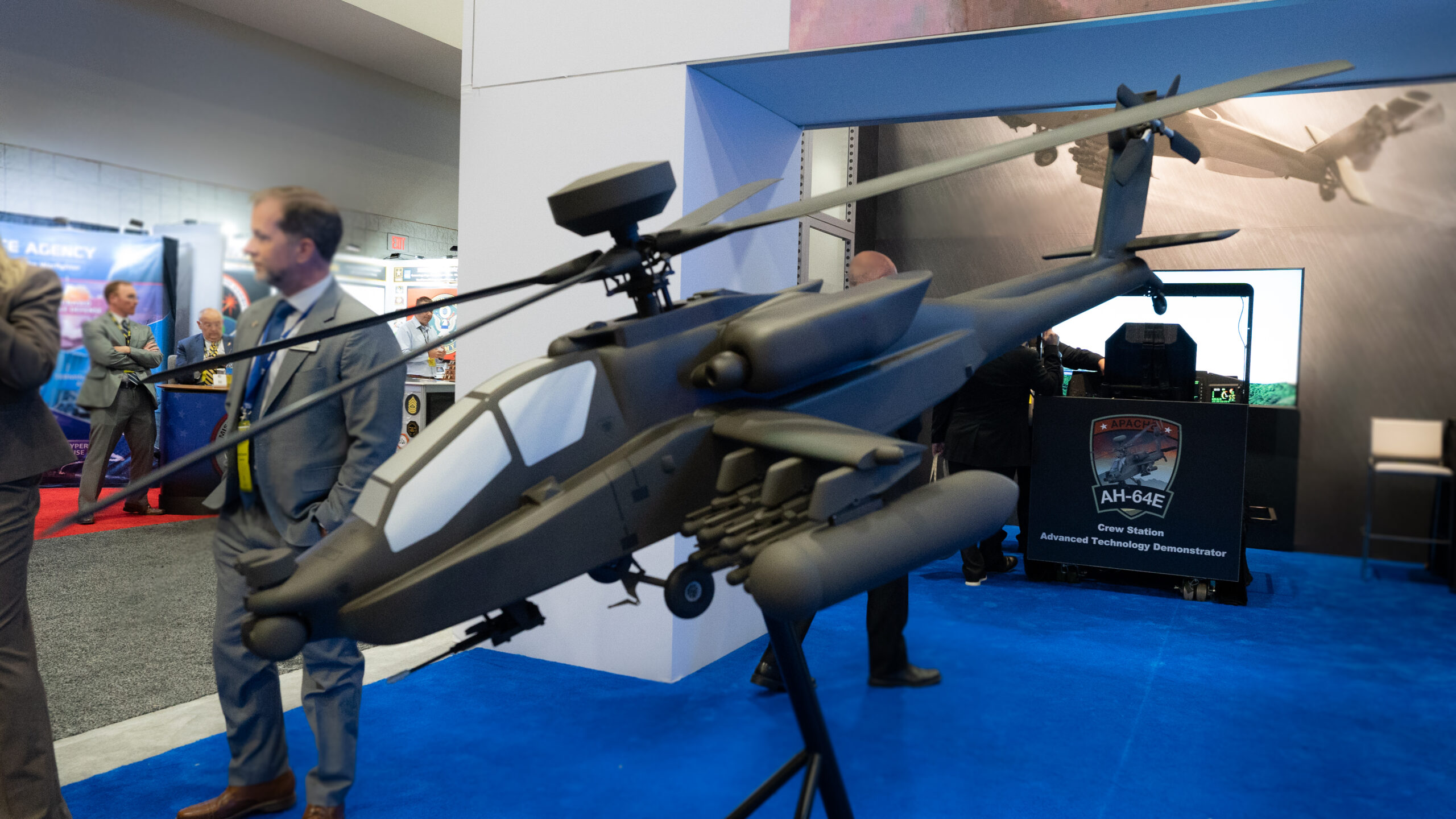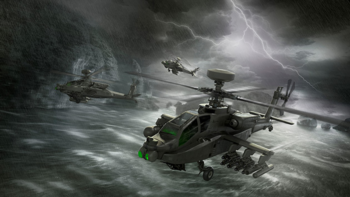
A model of Boeing Apache AH-64E shown at the Association of the United States Army conference on Oct. 10, 2022. (Brendon Smith/Breaking Defense)
AUSA 2022 — With no successor to the AH-64 Apache attack helicopter in sight, Boeing has begun floating ideas for a next-generation Apache that the Army may need to contend with future threats, company executives said today.
While the Army is currently in the midst of high-profile contests for two other near-future helos, there’s currently no stated Army requirement for a new version of the AH-64 on the books. The Army is still fielding the most recent AH-64E Apache Version 6, which it said in a Jan. 2022 news release is “the final planned modernization of the aircraft, replacing the AH-64D Apache attack helicopters.”
However, Kathleen Jolivette, Boeing’s vice president for attack helicopters, said it makes sense for the company to begin thinking about what a “modernized AH-64” would need to remain relevant into the 2060s.
“We believe we’re going to have to do something with the Apache in the future. It can’t just remain where it is,” she told reporters during at the Association for the US Army conference.
RELATED: Army’s Long Range Hypersonic Weapon has more flight tests lined up
“The Apache is going to be the US Army’s principal attack helicopter for the next 25 to 30 years. There’s nothing right now that is on the books that’s going to replace the Apache,” added Jessie Farrington, Boeing’s director of attack helicopter global sales and marketing.

A graphic of Boeing’s Modernized Apache. (Boeing)
Two capabilities will be central to a future AH-64: the Improved Turbine Engine and a modular mission system backbone, the latter of which will allow the Army to plug in different sensors or payloads without needing to majorly overhaul the helicopter, Farrington said.
The new engine — the General Electric T901 developed as part of the Improved Turbine Engine Program (ITEP) — completed the “first engine to test” (FETT) phase in July and is set to begin flight tests this fall. The ITEP engine will eventually power the Army’s Future Attack Reconnaissance Aircraft (FARA) and also fits the UH-60 Black Hawk and Apache, providing improved power, range and fuel efficiency.
In addition to those capabilities, Boeing is also evaluating additional upgrades for a modernized Apache, including advanced mission systems that can reduce cognitive strain and ease a pilot’s workload, improved sensor fusion and advanced sensors, and future precision munitions, laser weapons or air-launched effects, according to a news release.
“We’re trying to listen to what the Army’s saying about the modernization efforts and keep this as flexible as possible,” Jolivette said.
The future Apache would “complement” other next-generation platforms, the company said, referring to the winners of the Army’s closely watched FARA and future long-range assault aircraft (FLRAA) contests.























